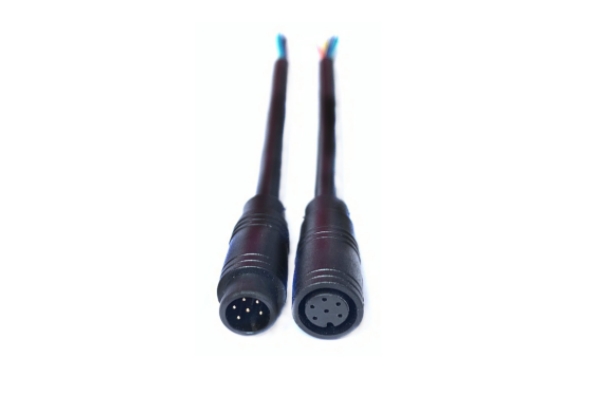News


News

Selection and Installation Guide for 6-Pin M8 Waterproof Connectors: Sealing Methods and Anti-Misplug Design
Release time:2025-05-14
viewed:392
In industrial and harsh environment applications, the reliability of electrical connections is paramount. The 6-pin M8 waterproof connector has become a critical component in automation, marine, and outdoor equipment due to its compact size and robust performance. This article delves into two key sealing technologies (O-ring vs. potting) and the necessity of anti-misplug coding, providing actionable insights for engineers and installers.

O-rings are the most common solution for M8 connectors, offering flexibility and cost-effectiveness.
Advantages:
Easy installation and replaceability during maintenance.
Effective against dust and water ingress (typically IP67/IP68).
Compressible design adapts to minor housing irregularities.
Limitations:
Vulnerable to chemical corrosion in acidic/alkaline environments.
Long-term compression may cause material fatigue, reducing sealing efficacy.
Potting involves filling the connector cavity with epoxy or silicone to create a monolithic barrier.
Advantages:
Superior resistance to high-pressure water submersion and chemical exposure.
Eliminates internal air gaps, preventing condensation in thermal cycling.
Limitations:
Irreversible process complicates repairs.
Requires precise control of curing time and temperature.
Selection Tip: Use O-rings for dynamic environments requiring frequent disassembly (e.g., sensor modules). Opt for potting in static, extreme conditions (e.g., underwater equipment).
In 6-pin M8 waterproof connector systems, misplugging can lead to equipment damage or safety hazards.
Key Solutions:
Mechanical Coding: Unique key slots or asymmetrical shapes ensure only correct pairs mate.
Color Coding: Visual differentiation for rapid identification (e.g., red for power, blue for signals).
Electronic Tagging: Embedded RFID chips for automated verification.
Case Example: In a factory with 20+ M8-connected sensors, mechanical coding reduced misplug incidents by 90%.
Thread Locking: Apply thread-locking adhesive to prevent loosening from vibrations.
Shielding Grounding: For EMI-sensitive applications, ensure shield termination to the connector shell.
Torque Control: Over-tightening may deform O-rings; follow manufacturer’s torque specs (typically 0.5–1.2 Nm).
Selecting the right sealing method and implementing anti-misplug designs are pivotal for6-pin M8 waterproof connector reliability. While O-rings suit most scenarios, potting excels in permanence-demanding setups. Coding mechanisms, though often overlooked, are equally critical for operational safety. By adhering to these guidelines, engineers can optimize performance across diverse industrial applications.